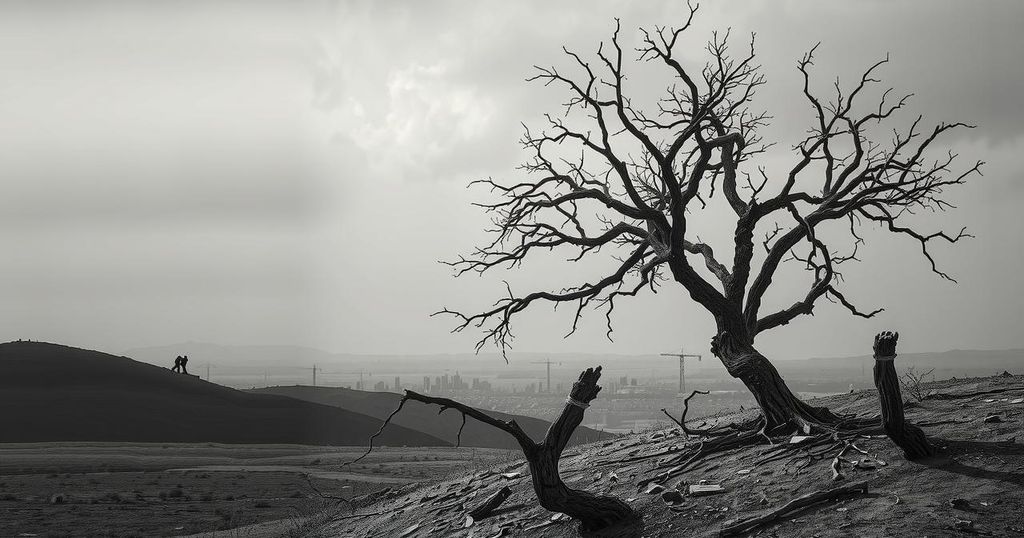UN Secretary-General António Guterres raised alarms over the M23 rebel offensive in eastern DRC, emphasizing the severe impact on civilians and regional stability. Recent advancements by the rebels pose a threat to the city of Goma. Guterres called for an immediate ceasefire and addressed the concerning presence of Rwandan troops supporting M23 fighters, stressing the importance of respecting DRC’s sovereignty and humanitarian access.
United Nations Secretary-General António Guterres expressed serious concern regarding the escalating violence perpetrated by M23 rebels in the eastern Democratic Republic of the Congo (DRC), emphasizing the severe impact this has on civilian populations. His statement outlined the recent capture of Sake by these Rwandan-backed militants, underscoring the increased threat to the regional capital, Goma, and raising fears of a broader regional conflict. Rwanda has denied any direct involvement with the M23 fighters.
With the withdrawal of the UN Mission from South Kivu in June 2024, the peacekeeping forces have remained engaged in North Kivu, specifically protecting Goma and Sake amid ongoing clashes involving the M23, Congolese Armed Forces, and various armed factions. Recent confrontations in the vicinity of Bweremana have resulted in at least ten fatalities and have displaced over 250,000 individuals, according to reports from the UN peacekeeping mission, MONUSCO.
Secretary-General Guterres urged the M23 to halt its offensive, retreat from occupied regions, and adhere to the ceasefire agreement established on 31 July 2024.
Additionally, he expressed deep concern over a recent report from the Group of Experts under Security Council resolution 1533, which indicated the presence of Rwandan troops within DRC and their ongoing support for the M23. Guterres called for respect for DRC’s sovereignty and territorial integrity and demanded a cessation of all foreign support for armed groups.
Emphasizing the importance of the Luanda peace process led by President João Lourenço of Angola, the Secretary-General commended the progress made and encouraged all negotiating parties to continue their efforts to mitigate tensions between the DRC and Rwanda. He urged a focus on neutralizing the FDLR and the withdrawal of Rwandan forces from the region.
Guterres highlighted the need for adherence to human rights and international humanitarian law amidst the conflict, advocating for unhindered humanitarian access to affected populations. He reaffirmed MONUSCO’s commitment to civilian protection and condemned any actions that jeopardize the safety of UN personnel and civilians.
The situation in the eastern DRC has worsened recently due to M23 rebel activities, which have attracted international attention. Following the withdrawal of UN peacekeepers, violence has intensified, leading to significant casualties and mass displacements. The involvement of Rwandan forces has been a contentious issue in the region, prompting calls for international intervention and support for peace agreements. Guterres’ remarks reflect a growing concern for civilian welfare and the need for regional stability.
The ongoing offensive by M23 rebels in the eastern DRC poses a grave threat to civilian safety. Secretary-General Guterres has condemned these actions and called for immediate cessation of hostilities, adherence to ceasefire agreements, and respect for humanitarian laws. The international community must remain engaged to support peace efforts and protect vulnerable populations amidst this escalating crisis.
Original Source: news.un.org






